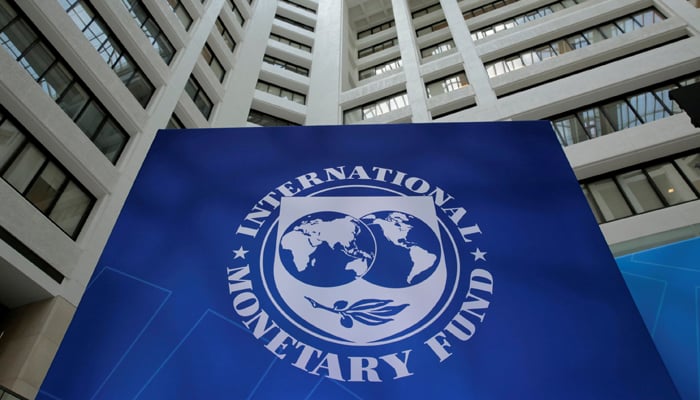IMF says Pakistan's assurance on external financing key to loan revival
Economy stricken by balance of payments crisis as Pakistan attempts to service high levels of external debt
International Monetary Fund (IMF) Monday tasked Pakistan to prove it had arranged all the external financing — covered for its international debt repayments — it would need during the rest of the term of the extended funding facility programme.
It was stated by IMF's resident representative in an interview with an international news agency.
The IMF wants Pakistan to convince it of the external financing, a key prerequisite for the unlocking of the loan that remains stalemated since late last year.
The economy is in dire straits, stricken by a balance of payments crisis as it attempts to service high levels of external debt, amid political chaos and deteriorating security.
The world's fifth-biggest population is no longer issuing letters of credit, except for essential food and medicines, causing a backlog of thousands of shipping containers at Karachi port stuffed with stock the country can no longer afford.
"All IMF programme reviews require firm and credible assurances that there is sufficient financing to ensure that the borrowing member's balance of payments is fully financed ... over the remainder of the programme. Pakistan is no exception," IMF's Ruiz said talking to a foreign news agency.
However, Finance Minister Ishaq Dar last week ruled out that the external financing promises were not an IMF condition for clearance of the funding.
"Pakistan requires $5 billion in external financing for the balance of payments deficit in the fiscal year ending June 30," Dar said adding the IMF stressed it should be $7 billion.
Ruiz, in the interview with the wire, said "the difference in foreign exchange rates between the open and informal markets has been very damaging for Pakistan, resulting in shortages of foreign exchange and consequently imported goods".
"The exchange rate has moved significantly in recent days, which has narrowed the informal FX market premium bringing the rates closer together in a similar way to that seen around January 26. This should result from the unconstrained operation of the foreign exchange rate market," she added.
Ruiz added that a permanent power surcharge on consumers was also among measures planned by Pakistani authorities to address energy sector debt.
"The power sector CD [circular debt] flow for FY23 is expected to largely overshoot expectations under the EFF-supported program by a sizable margin due to a significant under-collection from delays in regular tariff adjustments, declining recovery rates, and unbudgeted subsidies," the news agency quoted Ruiz as saying.
Ruiz added that preventing further CD arrears was vital to ensure the viability of the energy sector and enhance energy provision.
Meanwhile, Pakistan is seeking confirmation from Saudi Arabia to secure additional deposits of $2 billion and a $950 million loan from the World Bank and Asian Infrastructure Investment Bank (AIIB) for the signing of a Staff-Level Agreement (SLA) with the International Monetary Fund (IMF) within the coming week, reported The News.
“We are hopeful,” a government official dealing with the IMF replied when asked about the development.
The linked $950 million loan of the World Bank’s Resilient Institution for Sustainable Economy (RISE-II) and AIIB will be approved only if Pakistan secures the IMF bailout.
Another official assured that Pakistan was expecting to strike the SLA with IMF in the next few days, however, the Fund was reluctant to give any time frame for finalising the agreement.
China had already re-financed two commercial loans of $1.2 billion in two instalments, $700 million and $500 million. Now two more instalments of $500 million and $300 million would be re-financed by Chinese commercial banks in the coming days.
Pakistan is facing difficulty in its talks with IMF due to the increased hostility between China and the United States as they have to secure the SLA in a delicate balancing act to steer the economy and diplomacy in such a way that suits Islamabad’s larger interest.
-
Global memory chip crunch puts spotlight on Apple; Will iPhone become more pricey?
-
Bitcoin plummets toward $60,000 as investors dump risky bets
-
Bitcoin crashes below $63K as regulatory pressure and market fears grow
-
Bitwise Crypto Industry innovators ETF: What investors should do in 2026?
-
Nintendo shares slide again as momentum fears grow
-
Gold, silver prices fallen sharply; What’s driving the drop?
-
Gold’s record climb: Experts question if its safety is ‘overstated’
-
Dubai unveils plans to construct street built with real gold












